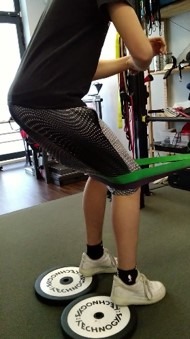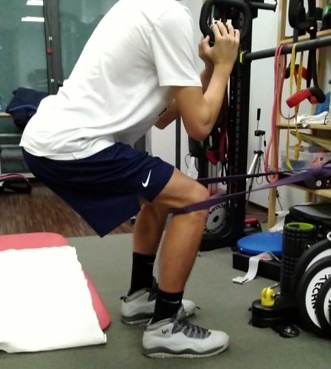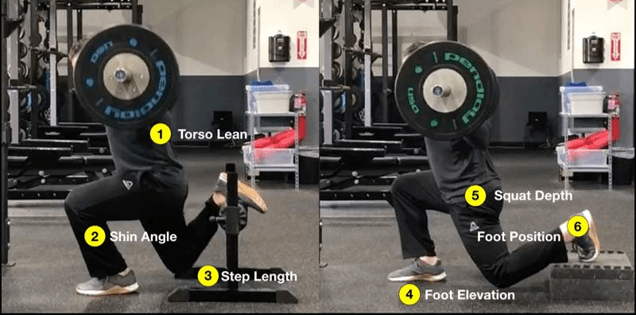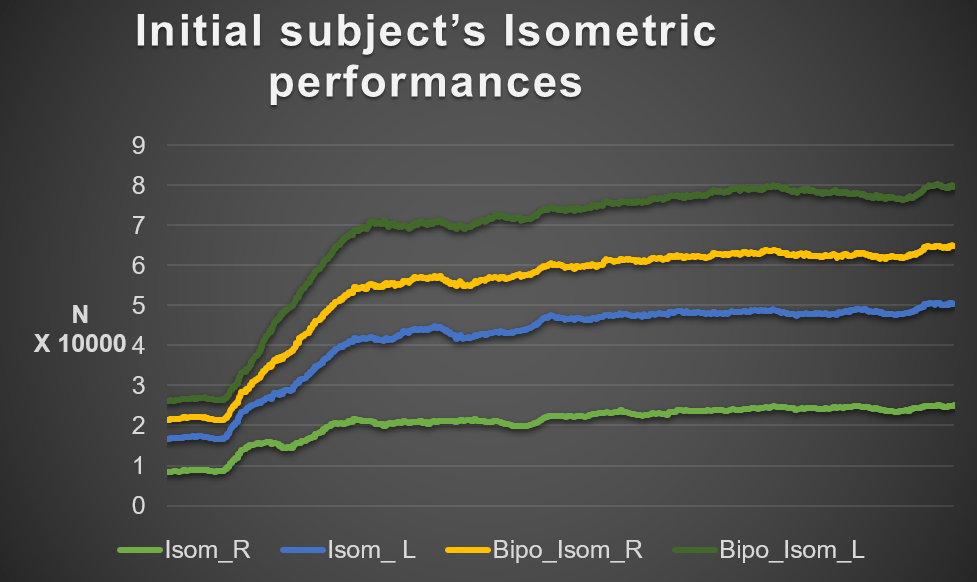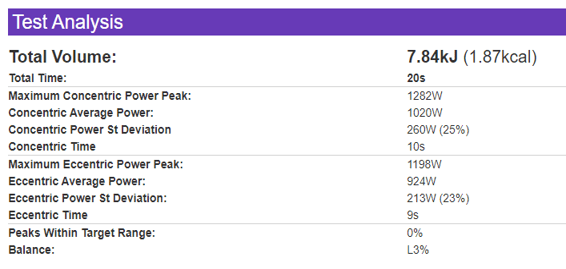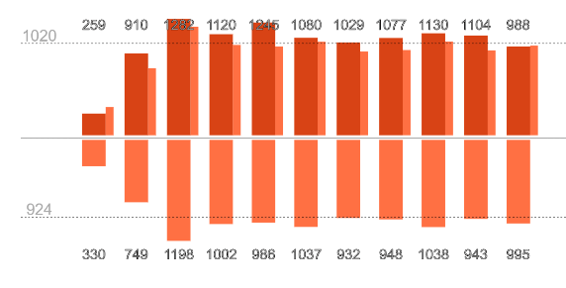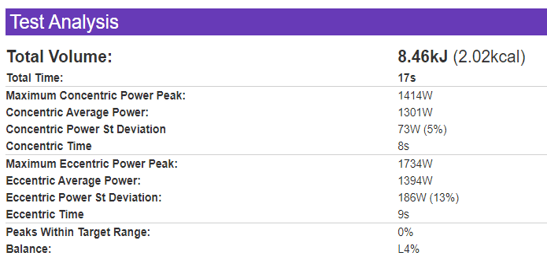INTRODUCTION
- The aim of this training project is to allow the subject GG, 22 yo, 196cm, 76 kg, to restart his sport activity as amateur volleyball player
- The athlete, affected by bilateral rotuleous tendinopathy, came to our centre in order to be treated.
- Our intervention was based on physioterapic sessions, then, once the subject achieved a complete return to functionality, he started a strength conditioning training in November 2019, in order to increase his load capacity, needed for his full recovery.
- The strength conditioning training was based on isometric exercises (ex. Spanish squat) during the pre-training phase, according to the program proposed by J. Cook, integrated with isoinertial training with Desmotec D.full, in order to improve the subject’s eccentric response which is fundamental in the jumps landing phase, an high impact and frequent situation while palying volleyball.
SUBJECT
| Gender | Male |
| Age | 22 |
| Job | Volleyball Player |
| LIFESTYLE |
— |
PROBLEM
Returning to sport activity, recovering from rutulean tendinopathy
PROTOCOL
| Functional recovery with Physiotherapist | |
| Opened and closed kinetic chain exercises | Isometric, dynamic, low speed |
| Lower Limbs | Isometric, Isotonic |
| Isoinertial Protocol Start | |
| Device | Desmotec D-Full |
| Test | Balance, Isometric Max, First Approach, Power Max |
| Isoinertial Protocol next steps | |
| Device | Desmotec D-Full |
| Test/exercise | Bilateral Squat,
Split Squat. Hip Hinge, Side Squat, |
| Inertia | Medium, High
(Medium, Large, Pro) |
ISOMETRIC — ISOTONIC EXERCISES
Spanish Squat different angles, 30 secs. Dor 5 repetitions, 3 times per day, Squat depth based on subject’s pain. Volleyball pre-training.
Bulgarian Squat, 3 slow series, 10 repetitions, focus on tension. Squat depth based on the subject’s pain. Volleyball pre-training.
ISOINERTIAL EXERCISES
Bilateral Squat, complete extension
Bilateral Squat, not complete extension
Iso Step-Up
Iso Split Squat
ISOINERTIAL PROTOCOL
| Week 1 | Sessions n.3 |
| Series | 3 |
| Repetitions | 15 |
| Speed | Low |
| Rec. time | 60 sec. minimum |
| Inertia | Medium — High |
| Target | Learning the exercise
Ipertrophy |
| Week 2-3 | Sessions n.6 |
| Series | 3 |
| Repetitions | 10 + 3 |
| Speed | Medium – High |
| Rec. Time | 60 secs. minimum |
| Inertia | Medium-High |
| Target | Ipertrophy – Power |
| Week 4-5 | Sessions n.6 |
| Series | 5 |
| Repetitions | 5+3 |
| Speed | Max |
| Rec. Time | 90 secs. minimum |
| Inertia | Medium |
| Target | Develpment Power and Resistence |
CONTROL TESTS
Initial Bipodalic Isometric Test, Squat 120°, 15 seconds.
Idem for Monopodalic squat
Max power TEST 02.12.2019 13:26
Device: D11 Full
Pattern: Squat Bipo
Method: repetition
Repetitions: 10
Inertia: 0,6 kg/m2
Improved power peak in concentric work (1282w to 1414w) and eccentric work (1198 to 1734w), diminished variable in concentric work (from 25% to 5%) and eccentric work (from 23% to 13%)
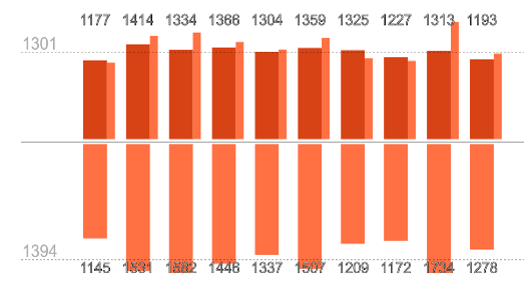
Max Power test TEST05.03.2020 11:51
Device: D11 Full
Pattern: Squat Bipo
Method: repetition
Repetitions: 10
Inertia: 0,6 kg/m2
CONCLUSIONS
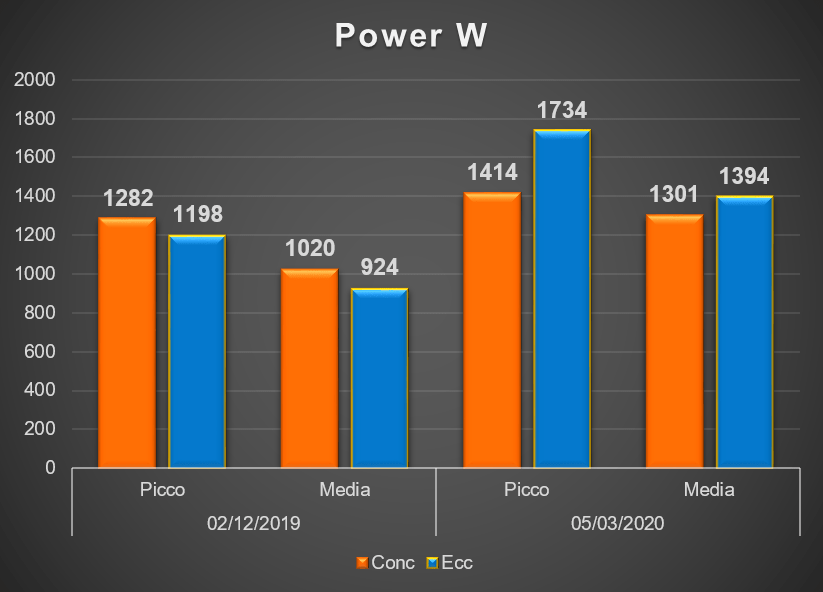
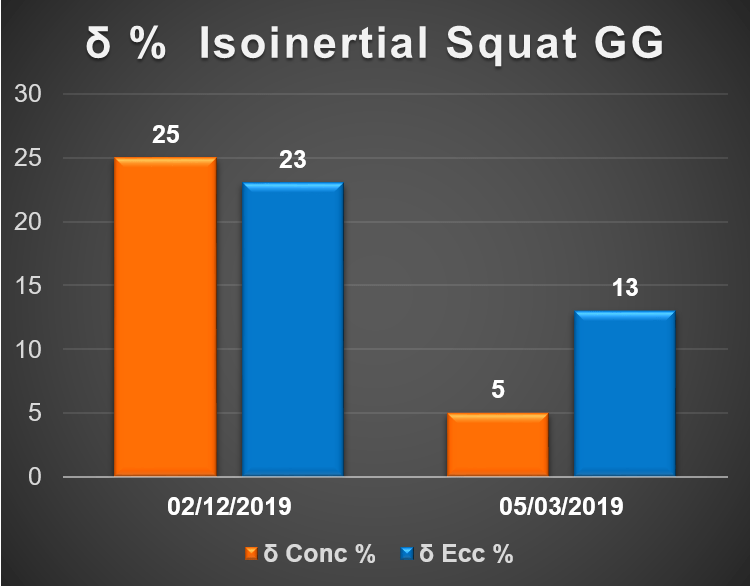
- The results were excellent, the subject felt his post- training and post-game pain gradually diminishing. The pain was almost unbearable before the treatment.
- No cases of Tendinean Algia after the Isoinertial
- Feeble pain (2-3 on a 10 scale) during isotonic monopodalic exercises At the end of the treatment, an exercises program was provided to the athlete, based on 5 sessions per week, to perform before training.
- We were not able to perform the final isometric tests because of the COVID-19 emergency.

